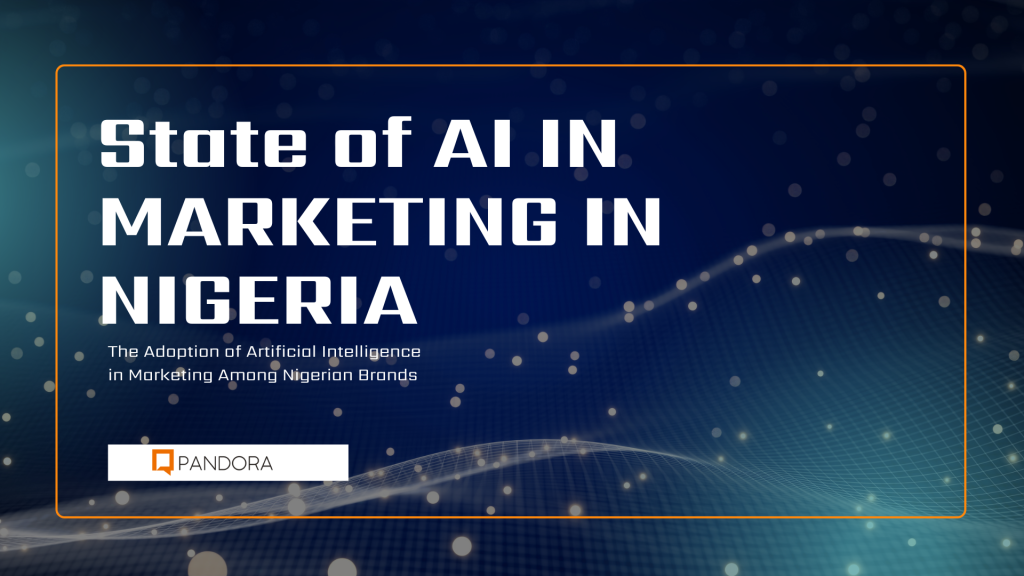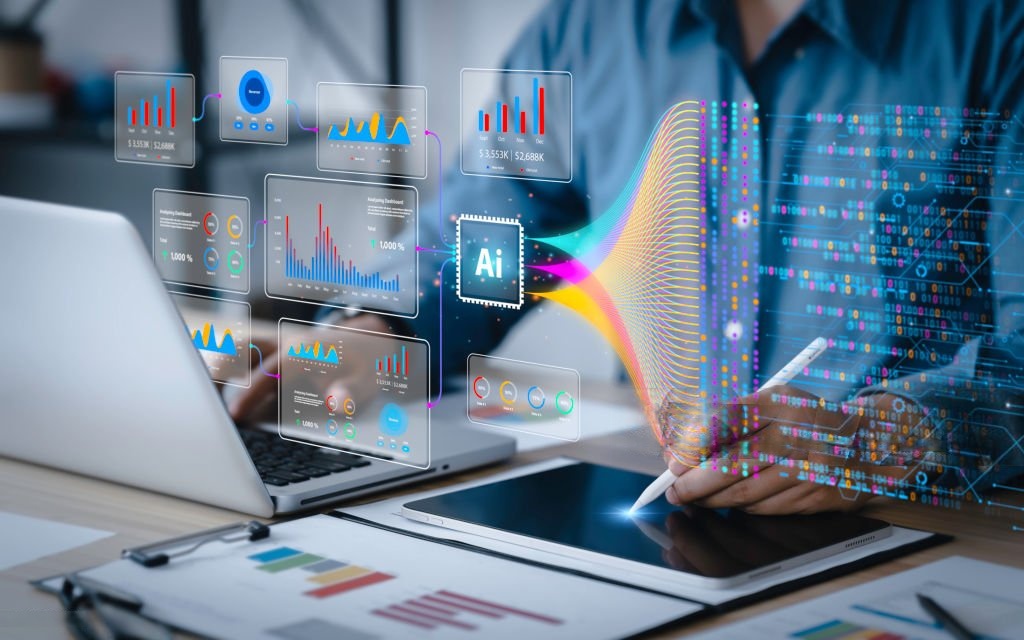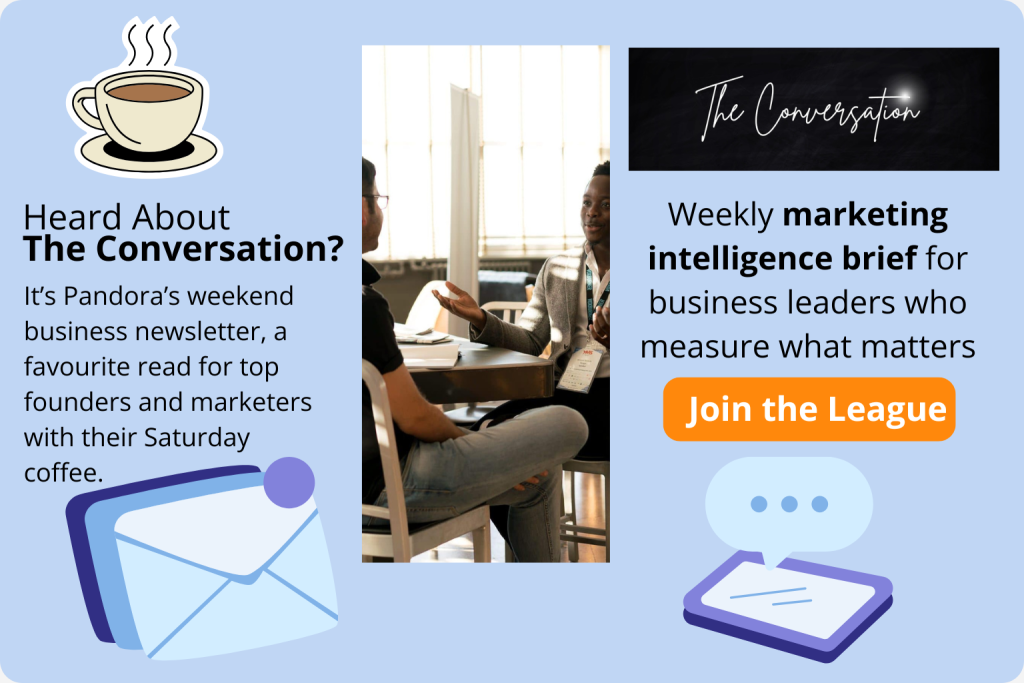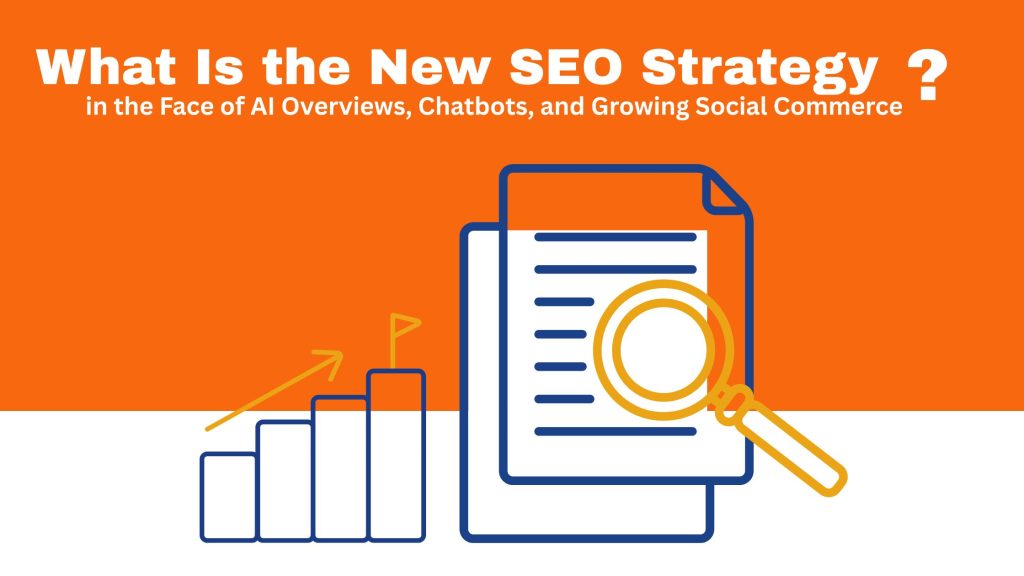
Learn what Nigerian marketers, brand owners, and regulators are saying about AI in marketing.
This year, we surveyed over 100 Nigerian marketing professionals and business owners to better understand how local brands are using artificial intelligence (AI) today and where they’re headed next.
In the marketing industry, two forces are constantly shaping performance: the emergence of new technologies and the shifting behaviors of consumers and businesses. AI is rapidly influencing both.
From content creation to customer targeting, AI tools are transforming how marketing is done but not all sectors, tools, or professionals are adapting at the same pace.
At Pandora Agency, we believe Nigerian marketers need context-specific insights, not just global trends to make informed, strategic decisions about adopting AI.
That’s why we conducted this survey, gathering firsthand responses from marketing leads, brand managers, agency heads, and business owners across key industries, including FMCG, fintech, media, retail, education, and more.
Built from these insights, our 2025 State of AI in Marketing in Nigeria report explores:
- How Nigerian brands are adopting AI-powered tools and platforms
- What benefits and bottlenecks they are experiencing right now
- The most in-demand use cases (from content to CRM and segmentation)
- The sectors and professional bodies where AI use is restricted or evolving
- What marketers are planning to invest in over the next 6–12 months
If you’re a Nigerian marketer, business leader, or technology partner looking to understand where AI fits in your local strategy, this is the report you’ll want to read, share, and act on.
Get Your Free Copy
What is AI in Marketing?

AI in marketing refers to the use of artificial intelligence technologies to enhance, automate, and optimize marketing strategies and activities. From data analysis to customer engagement and campaign execution, AI helps marketers make smarter, faster decisions.
Typically includes tools like ChatGPT for content generation, Grammarly for editing, and HubSpot for automated customer relationship management.
AI enables brands to predict customer behavior, personalize communication, and improve performance with minimal manual effort making it a game-changer for both large corporations and SMEs.
Benefits of AI in Marketing

AI in marketing offers a wide range of benefits that enhance both strategy and execution. One of the most notable advantages is efficiency. AI can automate time-consuming tasks such as data analysis, customer segmentation, email personalization, and social media scheduling. This frees up marketers to focus on higher-value creative and strategic work.
Another key benefit is precision. AI algorithms can process vast amounts of customer data in real time, enabling marketers to make more informed decisions and deliver personalized content at scale. This results in better customer experiences and improved conversion rates.
AI also improves performance tracking and optimization. With predictive analytics and real-time insights, marketers can quickly identify what’s working and adjust campaigns on the fly. Whether it’s improving ROI, enhancing customer engagement, or streamlining workflows, AI gives marketers the power to be more agile, data-driven, and results-focused.
AI in Marketing Examples
AI is used in marketing to streamline content creation, customer engagement, and campaign management. For example, marketers use tools like ChatGPT to write blog posts and email copy, Canva’s Magic Write for designing visuals, and HubSpot for automating customer relationship workflows.
AI video tools like Lumen5 turn articles into engaging video content, while platforms such as Grammarly refine brand messaging in real time. These examples show how AI helps marketers create, personalize, and distribute content more efficiently across multiple channels.
Future of AI in Marketing

The future of AI in marketing in Nigeria looks promising but complex. While adoption is on the rise, there are still barriers, including skill gaps, affordability of advanced tools, and concerns about creativity loss. Interestingly, professional bodies like the Architects Registration Council of Nigeria (ARCON) are placing restrictions on AI use, citing threats to originality.
Despite this, 70% of Nigerian marketers surveyed plan to increase their AI investment within the next 6–12 months. As tools evolve and awareness grows, we can expect a more structured and ethical integration of AI—focusing on personalization, performance insights, and smarter automation across the entire marketing ecosystem.




